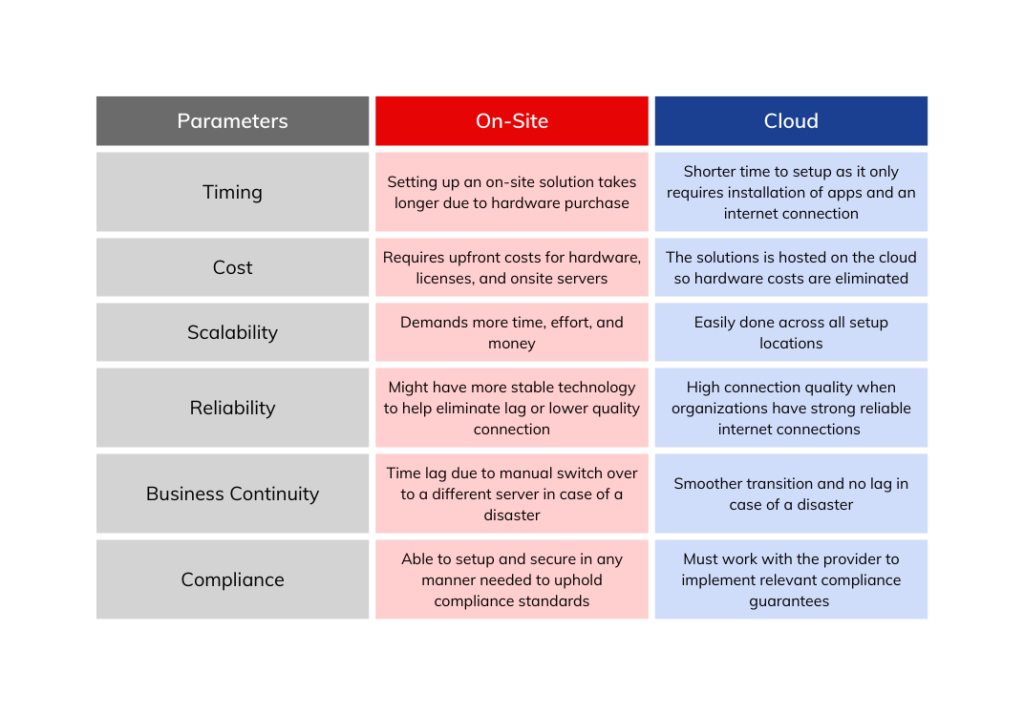Cloud Computing
The cloud refers to services that are hosted over the Internet, instead of locally on your computer, and accessed through a web browser or application. The advantage of the cloud is that you can access your information on any device with an Internet connection.
In the same way that a cloud is a dense cluster of water molecules that appear as a single object, a computing cloud is a dense cluster of servers working to create one giant computer resource. These servers can be accessed over the Internet along with the software and databases that run on them. Cloud servers are located in data centers all over the world enabling you and your employees to access files and applications from almost anywhere, because the computing and storage take place on servers in data centers, instead of locally on a device.

Cloud services are divided into three main categories or types of cloud computing: infrastructure as a service (IaaS), platform as a service (PaaS) and software as a service (SaaS).
IaaS
Lets you “rent” computing resources, such as servers, networks, storage, and operating systems, on a pay-per-use basis. As your business scales, the infrastructure scales with you, so you don’t have to invest in hardware or worry about security, maintenance, or software.
PaaS
Software is hosted on a remote server so you can access it anytime, anywhere, over the internet- from a web browser or a standard web integration. We take care of backups, maintenance, and updates.
SaaS
A cloud-based, application development environment that provides you with everything you need to build and deploy apps. Choose the features and cloud services you want on a pay-per-use basis in a public, private, or hybrid solution.
Cloud Models:
Public Cloud
The cloud infrastructure is available to the public over the internet and owned by cloud service providers, so your organization shares the servers with other clients.
Private Cloud
The cloud infrastructure is exclusively operated by a single organization this can be managed by the organization or the provider and your organization has private use of the servers.
Hybrid Cloud
A combination of the functionalities of both public and private clouds.
Cybersecurity in the Cloud
When using cloud computing your information lives online, so there’s always the risk of it getting into the wrong hands. Cloud companies know they must do their part and have security measures in place to protect your data from hackers, but in the end, if your data is compromised, it is your organization that will have to answer to customers or pay the fine. This means that just because you’re using cloud computing, you can’t let your guard down. You must still make cybersecurity one of your highest priorities.
Your cloud cybersecurity measure should work to accomplish the following:
- Enable data recovery in case of data loss
- Protect against malicious data theft
- Deter human error or negligence that causes data leaks
- Reduce the impact of any data breach
Ways to Protect your Data on the Cloud:
Adapt the Principle of Least Privilege
This means that only the people who really need the tools to do their job should have access to them.
Use a Password Manager
This makes it possible to use different strong passwords for all your online services, while you only have to remember a single master password. These managers help keep your passwords encrypted and locked away from unauthorized eyes. However, your password manager is only going to be as secure as the master password you choose for it – so make sure it is strong and secure.
Embrace Two-Factor Authentication
This is a layered approach to securing your data because the system requires you to present a combination of credentials to verify your identity for login. If you don’t have that setup, you should. In the case that one credential becomes compromised, hackers will not have the second authentication requirement and will be unable to gain access to your data.
Implement Encryption in the Cloud
Encryption is essential to any cloud security environment. Encryption protects your data at rest, in use, and in transit to and from the cloud. Simply put, encryption scrambles the content of business databases, systems, and files to make deciphering it impossible without the correct decryption key. Data in transit is most at risk, this includes the emails you send as much as the data saved to the cloud, but encryption helps shield it from unauthorized or malicious users.
Backup Cloud Data
If your data is ever compromised, having a backup makes recovering it a lot simpler. It’s easy to assume that your data is automatically backed up in the cloud, but some providers do not or may not guarantee that backup. It is essential to employ a solution that restores, backs up, and protects your data. Talk to one of our experts about our backup solution, we can help you decide what data needs backup and what option would protect your company the best.
Speak with our experts to know about the cloud solutions, pricing, implementation, or anything else. We are ever ready to help you!
